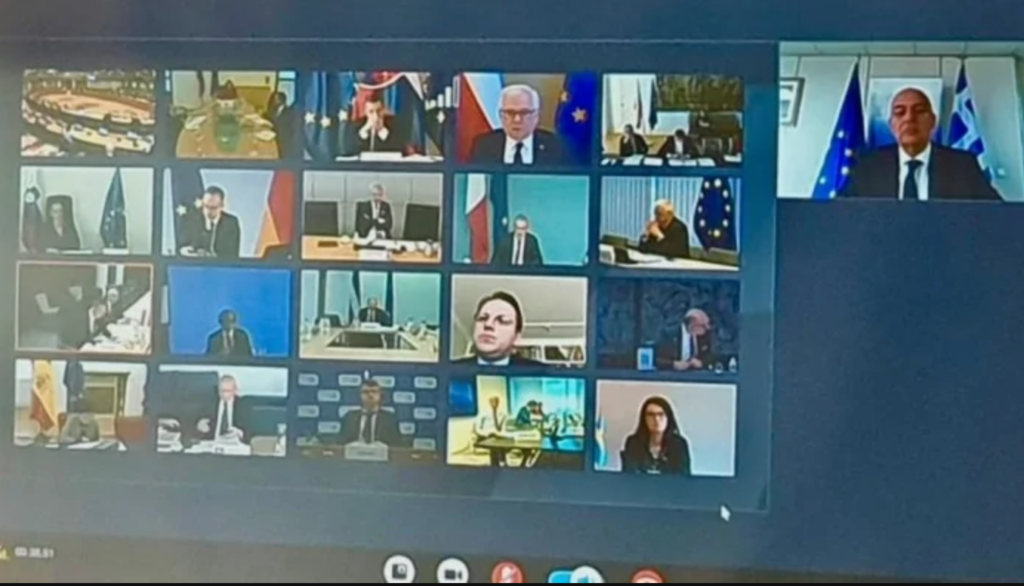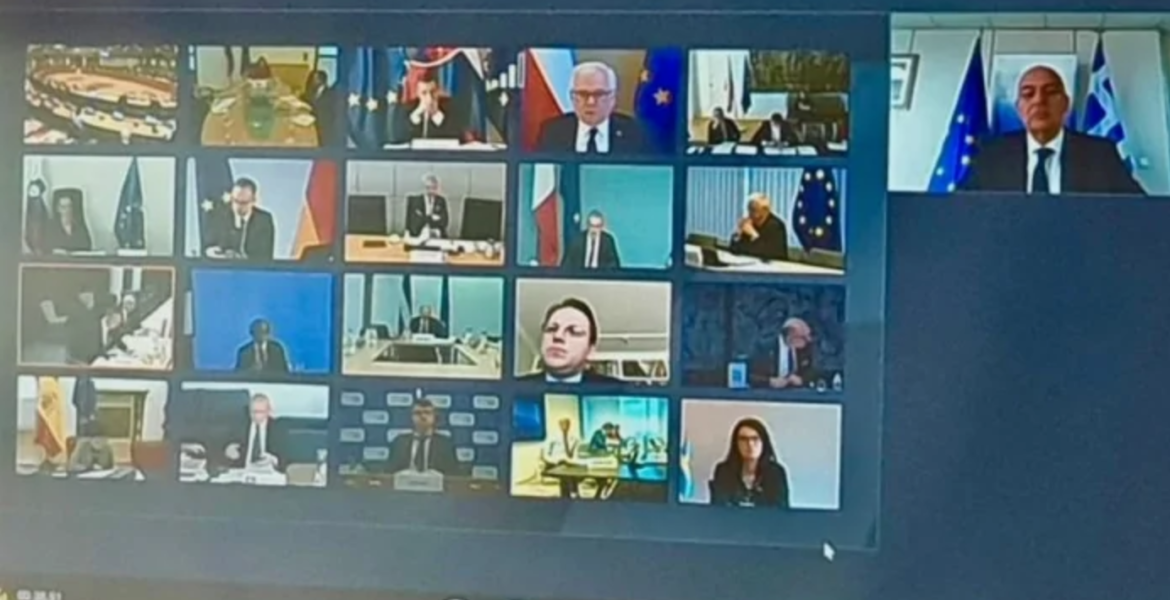
At the first Foreign Affairs Council (FAC) meeting held via teleconference as part of the coronavirus (COVID-19) preventive measures, Greece’s Foreign Minister Nikos Dendias, stressed the "need for strict implementation of the EU-Turkey joint statement of March 2016 before any additional financial assistance is discussed."
Turkey's "threats, which are also accompanied by the dissemination of fake news, will not be accepted by anyone."
The meeting also focused on developments related to the coronavirus pandemic, with emphasis on coordinating efforts to repatriate European citizens.
His statement reads as follows:
At today’s informal meeting of the EU Ministers of Foreign Affairs, which was held via teleconference, we talked about important issues in light of the serious recent developments on the global and regional level.
There was detailed examination of the situation in Europe, as regards the pandemic caused by the spread of the Covid-19 virus, the measures that have been taken to deal with its repercussions, the pandemic’s long-term impact on the geopolitical situation in the world and in Europe, as well as the coordination among EU member states to repatriate European citizens. In this context, we expressed our common will to continue efforts to repatriate European citizens who wish to return to their countries and reconfirmed our full solidarity, so that Europe can overcome the challenge it is facing and come out even stronger, even more unified.
We also discussed Turkey’s ongoing exploitation of migrants and refugees to blackmail Europe for political and economic gains. We reiterated that such threats, which are also accompanied by the dissemination of fake news, will not be accepted by anyone, and we reiterated the need for strict implementation of the EU-Turkey joint statement of March 2016 before any additional financial assistance is discussed. We were also briefed on developments in Syria and the need to deal with the humanitarian aspects of the crisis if we are to avoid new tragedies and new refugee flows.
Finally, we discussed the progress in the setting up and deployment of the new European Union operation for monitoring the Libya arms embargo, which will be called ‘Irini’. I emphasised the need for the new operation to begin as soon as possible and expressed our readiness to contribute with naval and aerial means.

